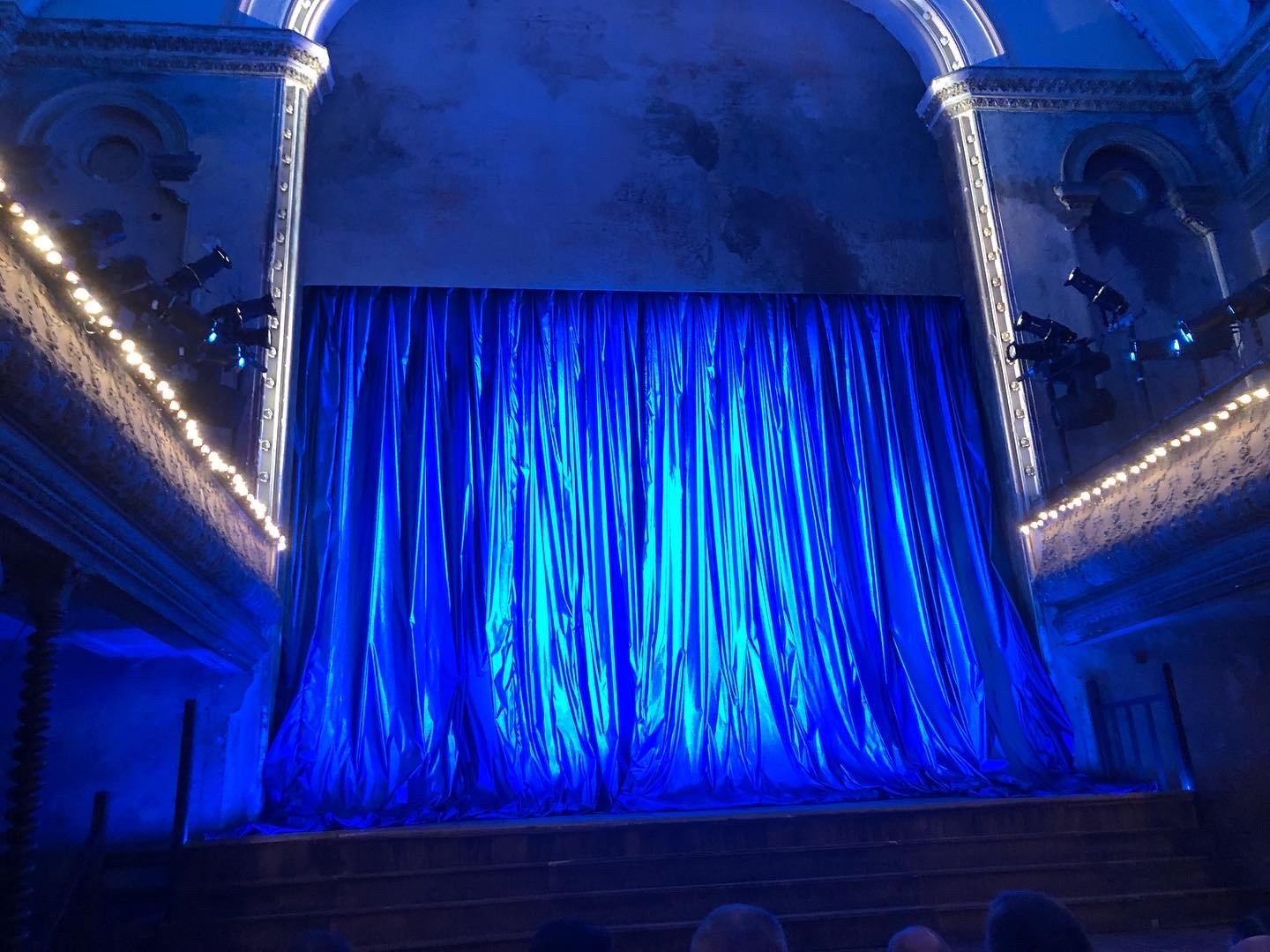A Trans Performer and a Countertenor, Apart and Together
How do you feel about drag queens and/or trans performers? How do you feel about countertenors? I have friends for whom drag-queen camp and trans performing are the liberating quintessence of theatre and theatricality; I have friends for whom the countertenor voice can be the quintessence of transporting, even disembodied, purity.
My own feelings are more inconsistent and conflicted. I’ve admired drag performances of various kinds since at least the 1970s, but I nonetheless often dread the artifice, tackiness, and misogyny that can be part of the drag genre (you probably know the kind of drag that prompts the thought “If that’s your idea of a woman, why would you want to inhabit it?”). I’ve been fascinated by individual countertenors since the recordings of Alfred Deller and the live performances of James Bowman - around age forty, I even dated a countertenor - but that very disembodied vocal quality tends to be what distances me from any intense response to the countertenor sound. And I’m inclined to think this is far from the affecting vocal quality of the castrati, the extinct genre of singer for whom Handel and other composers wrote.
“Only an Octave Apart”, directed by Zack Winokur, brings together the trans performer Justin Vivian Bond and the countertenor Anthony Roth Costanzo, Americans both. It began life in New York at St Ann’s Warehouse, Brooklyn, last year; here it runs at Wilton’s Music Hall until October 22. I’m startled by how forcibly it kept bringing all my problems with drag queens and countertenors to the surface. Yet I’m also aware that some of these problems at times are merely aspects of homophobia, something of which I, like many homosexuals, am seldom wholly free. At other times, this becomes a peculiarly immature show. London doesn’t really need a show whose two divi/dive congratulate each other on the heights of each other’s glittering careers; and Costanzo should know better, after sustaining the deep melancholy of one Liszt lied with affecting poignancy, than immediately to turn on a bright grin (both rows of teeth), as if letting us know that he was less moved by the song’s sorrow than we were.
And yet; and yet. Again and again, “Only an Octave Apart” proves a transcendent show, overcoming my resistance. Both Bond and Costanzo exemplify several layers of camp, some of which I find stale, ponderous, and dreary - and yet each of them then takes us through to many other layers of feeling. Bond, in particular, exemplifies strength and openness of spirit, warmth, courage, and transparency of emotion. There’s something so relaxed and warm about her/them: she/they celebrate(s) superficiality (“Keep it shallow”) while subtly, gently suggesting the reverse. And Costanzo’s sound is unlike that of any other countertenor I know. The opposite of disembodied, it makes you hear all the fibres, membranes, and cavities that connect voice to the whole body. It has purity - amazingly clean attack and untremulous firmness in sustained notes - but it’s purity of a very strange kind, full of complex humanity. Akhnaten, the title role of Philip Glass’s opera, has been an ideal role for him on both sides of the Atlantic. To my ear, his is an Italian vocal sound; I wish Italian opera houses would invite him to deliver some of the great Handel roles.
“Only an Octave Apart” plays Wilton’s until October 22: it should be seen by audiences beyond those who specialise in drag queens and countertenors. The two stars are vocally and temperamentally quite unalike, but Winokur’s production makes a virtue from that: there are duets where the contrasts in age and style between them become studies in harmony and diversity. There’s not only room in one stage world for these two luminaries, there’s eventually room in my heart for them both. Gradually, we become larger, calmer, and more receptive as we listen and observe.
Saturday 15 October
1.This poster shows countertenor Anthony Roth Costanzo (left) and trans performer Justin Vivian Bond (right).
2. Wilton’s Music Hall, as seen from centre stalls.
3: Wilton’s Music Hall with curtains parted as seen from centre stalls.
4: Wilton’s Music Hall as seen from centre stalls.
5: The rear balcony at Wilton’s Music Hall as seen from the stalls.
6: The rear balcony at Wilton’s Music Hall as seen from the stalls.
8: The rear balcony at Wilton’s Music Hall as seen from the stalls.






